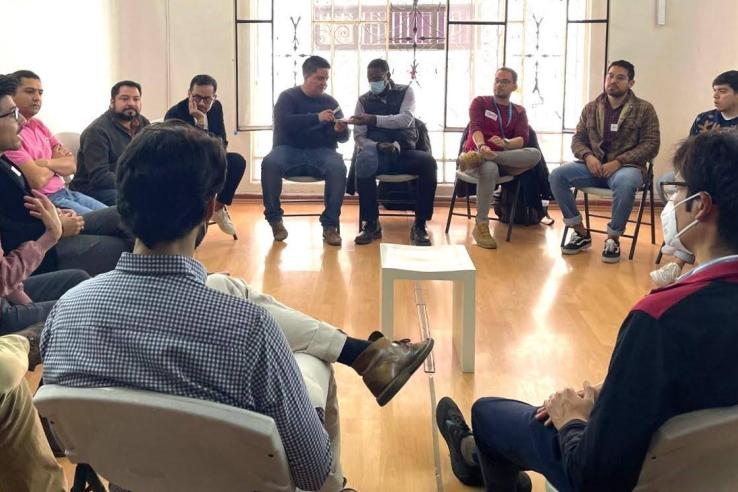Displaying 7591 - 7605 of 8077
Person
Person
Event
The Egypt Impact Lab, in collaboration with the Universal Health Insurance Authority (UHIA) and the World Health Organization (WHO) in Egypt, is hosting the first session of the Knowledge Exchange Webinar Series – Bridging Health Systems . This session will focus on benefit package design, drawing...
Blog
In this blog, Pierce County Human Services (Washington State) share insights into implementing a community engagement strategy within a randomized evaluation—drawing from their experience with the Fentanyl Detox Program.
Policy Publication
File: Policy publication
How do governance and conflict dynamics interact with climate change? What interventions can we invest in beyond mitigation to help manage the impacts of the climate crisis on governance and conflict? In this brief, we provide an overview of the theoretical frameworks and (quasi-) experimental...
Person
Aimee Barnes is a Policy Manger at J-PAL Global where she manages the Health sector and supports the Crime, Violence, and Conflict sector.
Person
Person
Person
Person
Lisa Turley Smith is a Research Associate for Amy Finkelstein at J-PAL North America, where she supports research on the end-stage renal disease treatment choice randomized evaluation.
Person
Blog
Our work at J-PAL Latin America and the Caribbean (LAC) is made possible by the close collaboration with and dedication of many governments across the region who recognize the importance of using data and evidence to improve social programs and public policy. We will translate some lessons of this...
Person
Nanditha is a Research Associate at J-PAL South Asia, where she contributes to the evaluation and implementation of Satat Jeevikoparjan Yojana (SJY), a livelihoods program under Bihar’s Rural Livelihoods Mission. SJY follows the “graduation approach to poverty”, aiming to uplift the most vulnerable...


